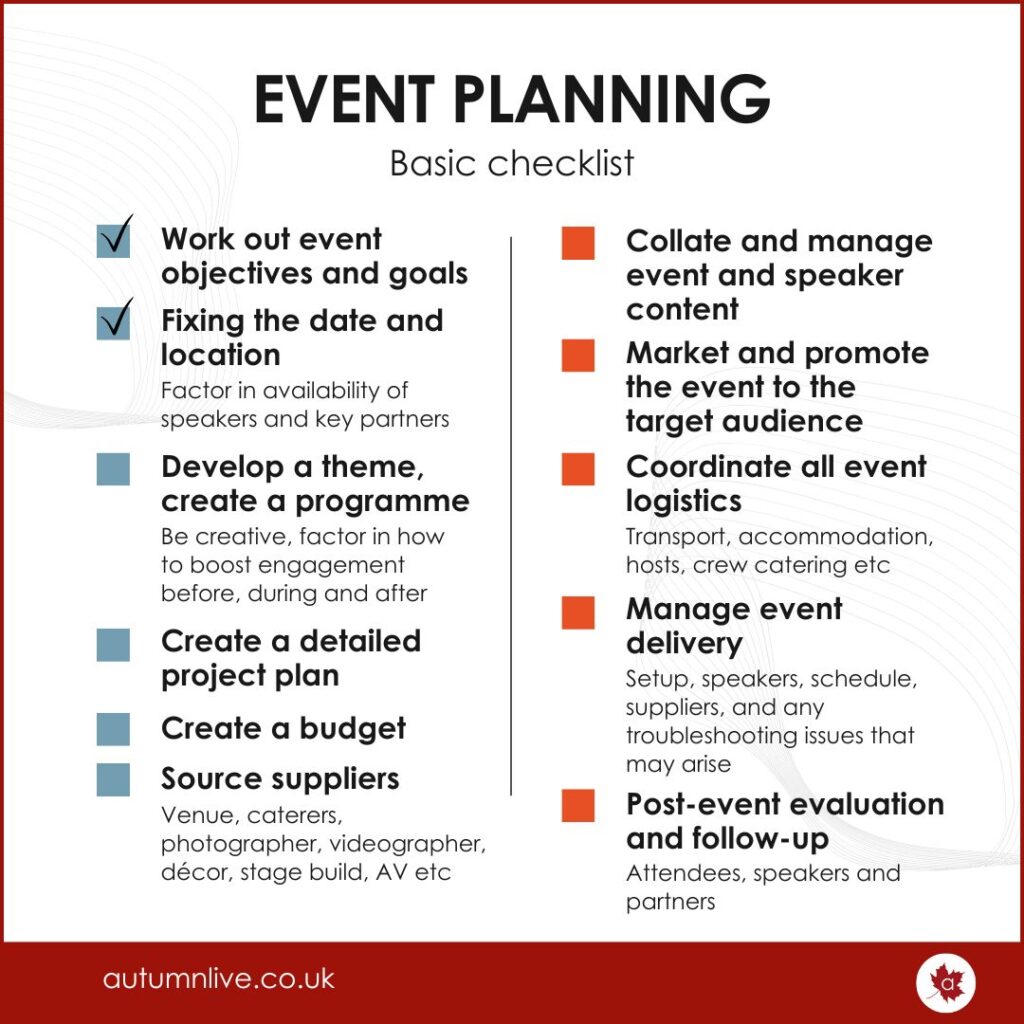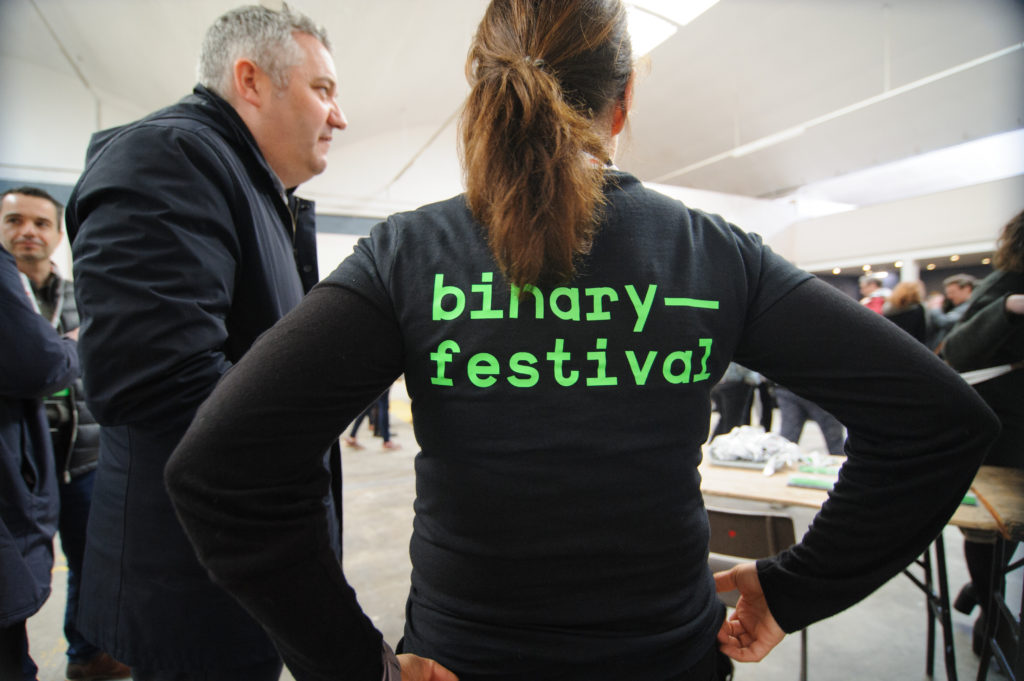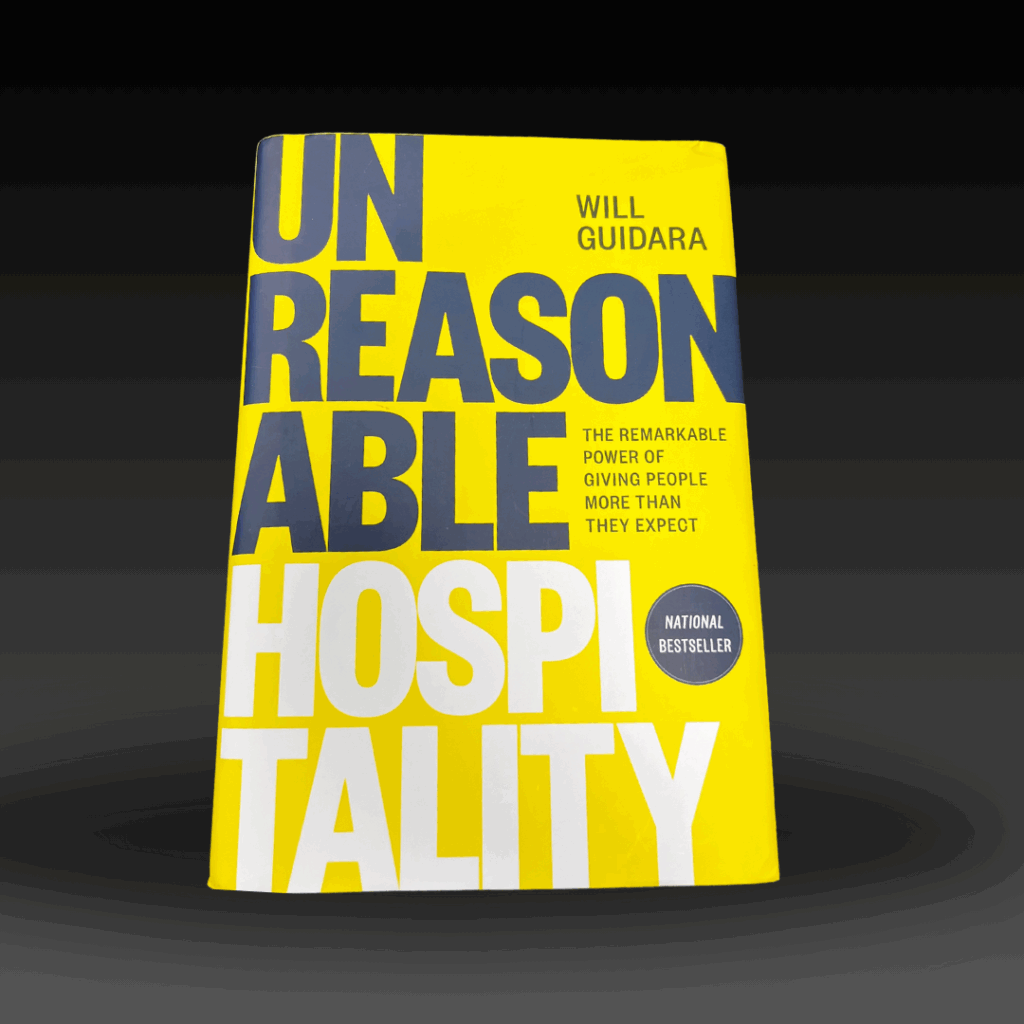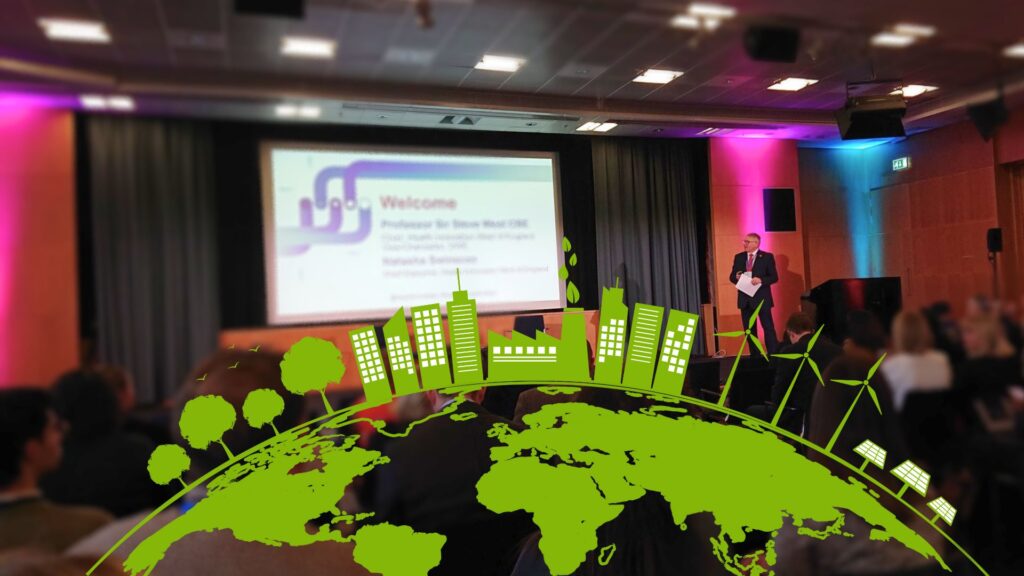Event planning is something we have probably all had to do at some point in our lives. It is the process of organising and co-ordinating an event, usually with a number of people there (I’d say more than 5) which has a purpose of gathering people together. It can be a conference, seminar, launch, workshop, webinar, summit, awards ceremony, live podcast recording or even a board meeting. Event Planning is a core aspect to our business.

The aim of event planning is to ensure the event you are creating runs smoothly, is successful and achieves the purpose you set out to achieve.
It is critical in the planning you keep referring back to the purpose of an event. We can get carried away with inviting too many people, adding too much into the content and programme to keep people happy (more on who to exclude from your event here). Your purpose will help you to benchmark who the event is for, why you are organising it and make the event have greater value. You can read more about knowing your why and your event purpose here.
Event planning usually involves the following steps:
- Working out what your objectives and goals for the event are
- Fixing the date and location – this often goes hand in hand with availability of speakers and key partners
- Creating a budget
- Sourcing suppliers, start with your event agency, who will handle all the speakers, programme and content, partners or sponsors. In addition to all the logistical suppliers such as venue, caterers, photographer, videographer, décor, stage build, av and other suppliers depending on the nature of your event.
- Developing a theme and creating a programme and detailed project plan for the event
- Managing speakers and event content
- Event Creativity – engaging aspects of the event, from invitation to event day
- Marketing and promoting the event to the target audience
- Coordinating all the logistics, such as transport, accommodation, hosts
- Managing the event on the day of, including overseeing setup, managing speakers, schedule, suppliers, and troubleshooting issues that may arise
- Post event evaluation and follow up of the attendees
What skills do you need for Event Planning?
Effective event planning requires strong organisational and communication skills. In addition to attention to detail, creativity, and flexibility. A successful event planner or event planning agency must be able to balance multiple responsibilities and work with various stakeholders and partners to ensure that the event meets the expectations of all parties involved.
What happens when it goes well?
When all the planning and thought as gone into the event ahead of schedule it actually makes the delivery much easier and smoother. All you have to do on event delivery day is crisis management. It’s much easier to handle crisis management when everything else is going smoothly.
Successful event planning creates the opportunity for successful event delivery. Outcomes such as happy clients and sponsors, attendees who have learnt, met, connected, and had value added to their lives. Elated speakers who feel satisfied with their delivery. Beautiful event moments of connection, inspiration and hairs-standing-on-end.
The reasons for events, according to Adam Grant, is to: decide, learn, bond and do. We agree.
What happens when it goes badly?
Despite all our risk assessments, thought and planning into handling unexpected situations sometimes nothing can prepare you for a volcano eruption that cancels all the flights into UK airspace (this happened!) As an experienced event planner, you start using your problem solving skills to get the speakers to the event. Immediately we started investigating overland options, alternative routes as well as altering the schedule to accommodate people who were able to get to the event. These events don’t happen very often but when they do the learning and teamwork is phenomenal.
We now include strike action, transport cancellation, threat of terrorist activity, threat from nature (storms leading to power lost) into our event planning and thinking. In fact this is where catastrophising is a useful skill (!)
How do you start work in event planning?
Studying first is a good option. In the UK there are several options for studying event planning or event management.
University of Westminster: The University of Westminster offers a BA (Hons) Event Design and Management degree, which covers event planning, tourism, and business management. The program includes hands-on experience through industry placements and events.
Bournemouth University: Bournemouth University offers a BA (Hons) Events Management degree that covers event planning, marketing, and operations. The program includes opportunities for industry placements and event management experience. We recently worked with a student from Bournemouth in event management at a local agency – she was utterly brilliant.
Manchester Metropolitan University: Manchester Metropolitan University offers a BA (Hons) Events Management degree that covers event planning, marketing, and operations. The program includes opportunities for industry placements and event management experience.
These are just three examples, and there are many other universities and colleges in the UK that offer event planning programs at various levels. It’s important to research and compare different programs to find the one that best fits your interests and career goals. It’s important to note that all of the courses mentioned here include industry placements and experience and this is definitely the best way to learn. You need to select your placement – venue, agency or client carefully to ensure you can optimise your learning. It’s invaluable and a critical to your first step into the industry.
Volunteer
Studying is a great way to learn and understand about event planning and event management but literally nothing is better than actual experience if you’re serious about becoming an event planner. We all know it’s hard to get a job without relevant experience and it’s hard to get some experience if you haven’t had any experience. The best way around this is to volunteer. There are loads of opportunities to volunteer at events – universities always need a hand with career fairs, open days or conferences. TEDx events are always looking for volunteers, find your local one by searching here on TED. Volunteers often get travel expenses so it’s well worth a few days of your time to get such a recognised brand on your cv and LinkedIn profile.
Event Management Placement
You can offer to intern or get a placement with a local agency. Search for agencies on google, LinkedIn and social media and reach out. Be flexible, enthusiastic and demonstrate your love for the job, agencies love a culture fit over a skills fit.
If you’re looking for experience or just want a chat about event planning, we’d love to hear from you. Get in touch.









